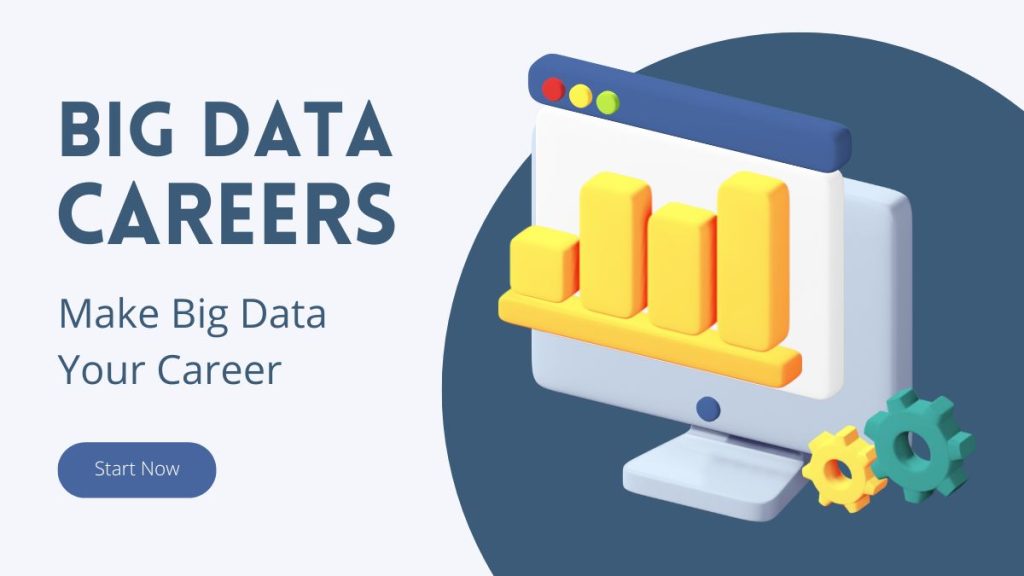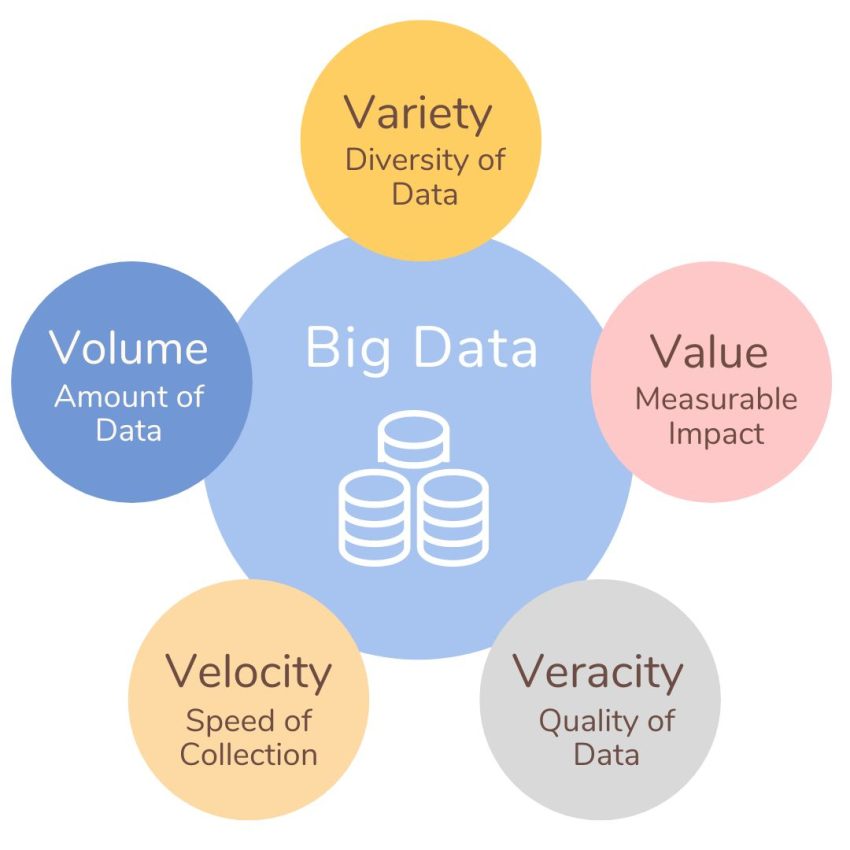An Overview of Big Data Careers: Make Big Data Your Career

Big data careers and guide
In this overview, we’ll explore the different big data careers, their responsibilities, and the benefits they provide.
From data scientists and architects to data analysts and engineers, there is a wide range of big data jobs available. Each profession carries unique responsibilities and provides unique benefits.
So, if you’re looking to make a career change and want to capitalize on the big data boom, then this overview is for you.
What is big data?
Big data refers to large amounts of data that is beyond the ability of traditional database software to store it. It comes from many different sources. For example, this can include customer transactions, social media, mobile devices, devices connected to the Internet of Things (IoT), and more.
Big data is most often unstructured. In other words, this means that it doesn’t take a traditional database format and can’t be easily accessed by database software. It’s important to note that big data isn’t new — it’s just the amount of data that has increased.
The 5 “V” concepts of big data include:

With the rapid expansion of the internet, social networks, and digital devices, businesses are now generating much more data than they were before. This is why big data has become such a hot topic. This is also why it’s so important for businesses to have the right tools and people to handle it.
Types of Big Data Careers
As we’ve seen, the usage of Big Data in business can improve operations and more. Because of this, there’s a wide range of big data careers available, and each comes with its own advantages. Let’s take a look at the different types of big data careers.
Data architects
Data architects are responsible for designing the company’s data architecture. This includes the design and implementation of the database and data storage systems in a company. In other words, data architects make sure to store data in the right way so that it can be accessed when needed.
Big data engineers
Big data engineers are responsible for building and maintaining the hardware and software necessary to store, manage, and analyze data systems. They work closely with the data architects to make sure the data is stored and managed appropriately.
Data modelers
Data modelers build and maintain the data models that are used to organize and store data. In fact, this is essential to the entire big data process. Because without models, there is no way to store and access the data efficiently.
Data scientists
Data scientists are responsible for leveraging the data and modeling to come up with new insights and recommendations for the company. In other words, data scientists take the data and build models to find new ways to use it.
Responsibilities of Big Data Professionals

In addition to the specific duties listed above, Big Data professionals must also be familiar with the latest tools and technologies in Big Data analysis. They must be willing to work in a team setting and understand how their work impacts other departments and functions within the company.
Data professionals must also be able to communicate well with clients and other internal stakeholders. Additionally, they must be able to translate technical terms and concepts into language that non-technical people can understand. Data professionals must be organized, detail-oriented, and able to work on multiple projects simultaneously.
They must also be able to work independently and have excellent problem-solving skills. The responsibilities of big data professionals vary from job to job, but these are general traits that many data professionals have in common.
Benefits of Big Data Careers
If you’re wondering why you should pursue a big data career, then you’ll be happy to know that there are many benefits to this type of work. For one, it’s an in-demand field, meaning that there is plenty of career growth opportunity.
In fact, the U.S. Bureau of Labor Statistics projects that the demand for big data professionals will grow substantially by 2026. Additionally, big data professionals can expect to earn a high salary — on average, data scientists earn $116,000 per year.
And let’s not forget about job security — big data careers are not only in demand now, but they’ll continue to be in demand as businesses and organizations continue to rely on data.
How to become a big data professional
If you’re interested in a big data career, you’re in luck. It’s a wide-open field and there are many paths to becoming a big data professional. Here are a few tips for getting started.
Summary
There are many different types of big data careers, including data architect, big data engineer, data modeler, and data scientist.
Big data professionals must be familiar with the latest tools and technologies used in big data analysis. Plus, they must be willing to work in a team setting and be able to communicate well with clients and other internal stakeholders.
If you’re interested in a Big Data career, start learning about it now. Also, try building a strong resume and portfolio, and get involved in the big data community.

Related Big Data
13 IoT Uses And Applications for a Connected World
An Overview of Big Data Careers: Make Big Data Your Career
The 5 V’s of Big Data
What Is A Data Mining Specialist and What Does It Do?
The Pros and Cons of the Internet of Things (IoT)
10 Big Data Companies to Watch in 2024
How Big Data Can Help Your Business Grow
How Big Data and the Internet of Things (IoT) Are Revolutionizing Industries